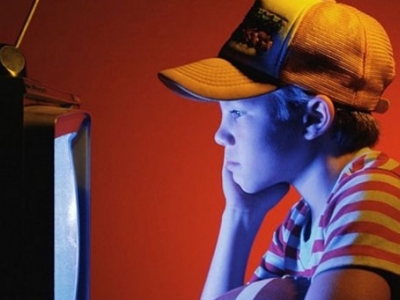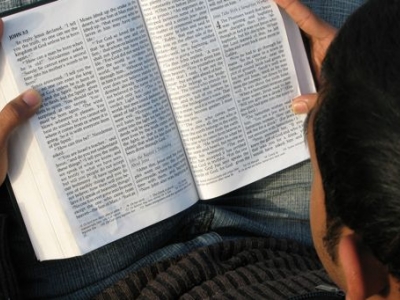
The Olympics: is anyone watching?
Why is this one of the least watched Olympics in Australian free-to-air history?
Is anyone watching?
Australians are tuning in to the Nine Network in the millions to watch the London Olympics, but the greatest of all sporting fixtures is proving to be less profitable financially and spiritually than might have been hoped.
The triumphant, but tongue-in-cheek Opening Ceremony for the 30th Olympiad was a resounding success for the Nine Network, with 2.84 million Australians pulling up their chairs to watch a spectacle that included Queen Elizabeth, Daniel Craig and Rowan Atkinson, as well as a host of other British celebrities. Nine’s professional commentary from Eddie McGuire and Leila McKinnon was a little less spectacular, with constant note reading, and Leila letting the cat out of the bag about the Queen’s participation. However, the broadcast still managed to draw in 35% of all viewers for the night. But where has it gone from there? Sadly, the answer is down.
The network’s repeat broadcast later that morning averaged 1.7 million viewers, the poorest performance for a daytime opening ceremony since the beginning of Oztam ratings. To add insult to injury, Network TEN’s Masterchef finale actually won the week with its Wednesday night average of 2.2 million. Pundits have been quick to point to the difficult time difference between England and Australia, meaning most supporters have to get up in the middle of the night to follow events. However this handicap hasn’t hindered Nine’s pay-channel partner Foxtel.
Foxtel has scheduled eight channels of Olympic action, providing a banquet next to Nine’s meager fare. In return, it’s received audiences as high as 1.27 million, delivering a personal best for Foxtel and the highest numbers for a cable channel in Australia’s broadcasting history. And in doing so, it’s outdone key free-to-air channels with its combined total audience share beating their combined digital totals for the first five day’s of events:
Saturday: Foxtel 24.8% Seven 11.3 % Ten 8.0%
Sunday: Foxtel 27.3% Seven 15.5% Ten 9.7%
Monday: Foxtel 23.6% Seven 16.1% Ten 13.4%
Tuesday: Foxtel 22.6% Seven 17.9% Ten 14.1%
Wednesday: Foxtel 22.5% Seven 17.3% Ten 14.6%
Nine was a dismal third. To put that in perspective, Australian viewers are prepared to pay for their sport, rather than watch Nine’s free to air coverage.
A skewed view
So the question is, what’s gone wrong?
Part of the answer has to lie in the way Nine has programmed the Olympics. To begin with, there is a disproportionate amount of attention being paid to the swimming. This might have seemed a safe bet when plans were being drawn up, but it’s actually drawn a sizeable backlash. One poster on Nine’s Olympic Facebook page begged Nine to show something other than, “…swimming, repeats of swimming, interviews of swimming, analysis of swimming, previews of swimming.” To date it’s received over 150,000 Likes.
Then there’s the seriously over-dramatised way in which the network has portrayed the swimming. James Magnusson’s 100m freestyle final, apparently carried the hopes of a nation. Consequently, when he earned a silver medal, the first words out of the mouth of the Nine reporter’s mouth at the poolside were, “I know you must be gutted by that performance”. Well if he wasn’t, that couldn’t have helped. Nor would Nine’s decision to cross live with him to a seriously deflated group of supporters in his hometown of Port Macquarie. A more sympathetic director might have spared him that.
However, it’s fair to say that the disappointment on the faces of his friends and family mirrored the majority of Australians. We are a self-acknowledged sporting nation, and we look to the Olympics to provide us with a new crop of champions to cheer on. A Christian might venture to add some balance at this point by echoing the advice of Paul to Timothy that,
“… physical training is of some value, but godliness has value for all things, holding promise for both the present life and the life to come.”
But there’s no doubt that the example of such heroes continues to inspire us to excel on and off the sporting field. The real danger, though, is when what is meant as a pastime becomes our full-time preoccupation. Backstroke swimmer Emily Seebohm earned a silver medal in the 100 metres final, but confessed she felt like second was the first amongst the losers, and not much better than the ninth position she’d placed in the previous Olympics. The four years in between and the final result have left her happy, but ultimately disappointed. That’s because while sport is a good thing, it’s not a great god.
Fixing our hopes on such a fickle master who rewards with fleeting returns is no plan for longterm happiness. Maybe physical training is only of some value after all…
Watching The Olympics with your kids
The Olympics can be inspirational viewing, and so parents have a lot to work with when it comes to questions of greatness and goals for life. When kids are reflecting on a particular result, try asking one of the following questions:
- Do you remember who won that event last Olympics - or the Olympics before?
- Why do you think people feel so bad about second place?
- How long does Olympic glory last?
- Who is the one Person who is guaranteed to always remember your efforts and your name?
For more articles from Growing Faith, subscribe to our monthly e-newsletter.
To hear about the latest books and resources from Youthworks Media, subscribe here.







